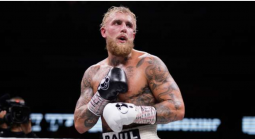Jurors Hear Closings at Philadelphia Crime Boss Trial
A notorious Philadelphia mob boss who claimed he gave up his life of crime instead made money by muscling his way into health insurance and gambling schemes run by organized crime families around the East Coast, a prosecutor said Tuesday at closing arguments at a federal racketeering trial.
After spending 12 years behind bars in another racketeering scheme marked by violence, Joseph "Skinny Joey" Merlino soon re-emerged as a feared figure in the Mafia, Assistant U.S. Attorney Lauren Schorr told jurors. That meant he could demand a cut of the illicit profits from schemes begun in 2013 by gangsters who were under his protection, Schorr said.
"Being with Merlino did not come for free," Schorr said in federal court in Manhattan. "You pay tribute."
Defense attorney Edwin Jacob countered by telling jurors that they were being misled by "compromised" turncoat mobsters who testified against Merlino, including one who made hundreds of hours of secret recordings of him.
"Have you heard anybody say Joseph Merlino is the boss of the Philadelphia mob?" Jacobs asked, referring to tapes played for the jury. "The answer is obvious — not a peep that he's the boss of (the) Philadelphia mob."
Merlino, 55, was among nearly four dozen defendants arrested in a 2016 crackdown on an East Coast syndicate that prosecutors say committed crimes including extortion, loan-sharking, casino-style gambling, sports gambling, credit card fraud and health care fraud. It operated in New York, Massachusetts, Pennsylvania, Florida and New Jersey.
Most of the defendants pleaded guilty to lesser charges. Merlino is the only one so far to go to trial on conspiracy charges.
In her closing, Schorr highlighted testimony by a cooperator who testified that Merlino had full knowledge of a scheme to collect thousands of dollars of insurance claims by bribing doctors to write phony pain cream prescriptions for people who had no ailments. She cited a recording of Merlino that captured him telling cohorts, "We do the right thing, make 20,000."
Merlino's bookmaker underlings got away with brazenly withholding winnings from betters, knowing their affiliation with the defendant sent the message "they were part of La Cosa Nostra," she said.
The defense has claimed that at the time of the alleged conspiracy, Merlino was a gambling addict and fledgling restaurateur who took money from a cooperator because he was always broke. There also was testimony from government witnesses, heard by his wife in the audience, that he drank heavily and that he had an affair with a pharmaceutical saleswoman.
After the testimony about the fling, Merlino approached a New York Post reporter outside court and told him, "Don't put the girl in" a story, the Post reported. He caused another stir earlier in the trial by greeting a juror by name as she waited for an elevator at the courthouse.
Merlino "just said, 'Hi, Sylvia,' and I just turned my head, like, 'Some nerve,'" the juror told U.S. District Judge Richard Sullivan at a sidebar, according to a transcript.
Sullivan responded by telling the defendant, "Mr. Merlino, you are to have no contact with jurors, even to say, 'Good morning,' even to say, 'Hello.'"















